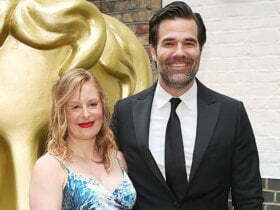A not-unusual refrain from writers on Twitter is that writing is difficult. This perception is often observed through the rueful statement that tweeting is easy. This is, of the route, the distinction between informal and formal expression, between language that serves as an unfastened and intuitive car for notion and language. One has to struggle with one’s idea like a discern forcing his squirming child into a vehicle seat. We’ve long had each formal and informal mode of speech.
The first pour from political orators; the second one winds around buddies at a bar. But, because of the linguist Gretchen McCulloch’s well-known shows in “Because Internet: Understanding the New Rules of Language,” her bubbling study of how the digital world is transfiguring English, casual writing is exceptionally new. Most writings were once regulated (or self-regulated); there have been postcards and diary entries, but even those had requirements. With the upward thrust of the Internet, it’s most effective that a genuinely casual, willfully ephemeral prose has ascended—and become valuable to daily lifestyles.

McCulloch begins with a taxonomy; special cohorts of customers have exceptional linguistic tells. “Pre Internet People” (think grandparents) generally tend to keep away from acronyms like “ttyl”—often because they don’t realize acronyms like “ttyl.” “Semi Internet People,” who logged on inside the past due nineteen-nineties and early -hundreds, as adults, are much more likely to type “LOL” than “lol”; they don’t view virtual communique as the area for tonal subtlety. “Full Internet People,” who grew up with AOL Instant Messenger and joined Facebook as teens, are fluent in text-communicate but possibly less steeped in the grammar of newer systems like Snapchat and WhatsApp.
Finally, there are “Post Internet People” who joined Facebook after, as opposed to earlier than, their parents. (McCulloch identifies a source of mutual misunderstanding among Full Internet People, who “infer emotionally that means” in symbols like the ellipsis, and Semi Internet People, who understand such additions as honest bits of sentence shape.) They’re those to observe: the digital avant-garde.
For McCulloch, the primary feat of the digital creator has been to enlist typography to deliver the tone of voice. We’ve used era to “restore our bodies to writing”: to infuse language with more textual, which means, in the same manner, that we would wave our arms at some stage in a verbal exchange. One fashionable principle is that communication leans toward the efficient, so any extra markings (sarcastic tildes, for instance, or a length wherein a line break will do) telegraph that there’s more to the message than its literal import.
That’s how the duration in textual content messaging earned passive-competitive popularity and why so many visible flourishes default to implying irony. Similarly, the expressive lengthening of words like “yay” or “nooo” confers a friendly intimacy, and technical marks (just like the ahead scale down that ends a command in a line of code) locate new existence as social in-jokes (“/rant”). McCulloch writes Typography does now not, without a doubt, conjure the author’s temper. It instructs the reader about the reason for the statement to gesture towards the spirit in which the declaration was conceived.
McCulloch’s venture is, at heart, a corrective: she desires to puncture the belief that the Internet de-civilizes discourse. She brandishes research indicating that we become extra polite as we get better at typing. (As with online irony, online civility emerges from linguistic superfluity, the notion that an additional attempt has been made, whether or not through hedges, honorifics, or more overall words.)
To people who worry that the Twitter era is eroding our eloquence, McCulloch replies that, in fact, “all our texting and tweeting is making us better at expressing ourselves in writing.” She cites a look at almost one million Russian social-media users, revealing that messages in 2008 were much less complicated than messages in 2016. Through GIFS, emojis, and the playful repurposing of general punctuation, McCulloch insists, Internet natives bring extraordinary delicacy and nuance to their prose.
To back this (strong) claim, the book proposes that the Internet’s informal English raws from the diffusion of registers, using vintage and new tools to create finely calibrated washes of which means. Considering a real text from a youngster-ager’s cellphone—” at the display this night shall rock a few serious jams”—McCulloch highlights the archaic “shall” next to the informal “high.” Such intermixing, she argues, makes Internet-ese “a distinct style with its desires.
To accomplish those desires efficaciously calls for subtly tuned recognition of the overall spectrum of the language.” This smart statement is also destabilizing: if digital English is “informal” but imports “formal” locutions, one wonders what the types are for within the first place. As the ebook notes, the quest to make writing more emotionally precise and greater speech-like isn’t Internet-unique; throughout the modernist movement, writers regularly broke regulations of grammar and punctuation.
The language of James Joyce or E. E. Cummings shows a desirable parallel to Internet use, as do different 20th-century innovations (unfastened verse, move of cognizance, profanity) that asked for an unbuttoned style to represent human interiority. McCulloch grants that conventional writing has tilled those fields earlier than, and they do not deny that extraordinarily old-faculty techniques—vocabulary, syntax—can load sentences with the perfect inflections of verbal exchange. Her point, rather, is that this skill is turning into commonplace. “We now not be given,” she writes, “that nuanced writing is the exclusive domain of professionals.”
We may be living through the democratization of refined writing—however, what distinguishes Internet-ese from different experimental prose? Certain authors—Tao Lin, say—whose fiction feels of the Internet, even in the tough replica. There are also recognizable, Web-based sensibilities: shouty wit (Lindy West), prolix familiarity (Choire Sicha), and depressive dreaminess (Melissa Broder). McCulloch discusses a few “extremely online” literary effects, including the poetic blankness of minimalist typography, which omits punctuation, and now and then inserts spaces among letters to rouse a l I e n a t I on.
But she doesn’t certainly anatomize Internet voice. (She’s not interested, for instance, inside the “due to the fact [noun]” creation that gives the ebook its name.) This is probably wise; including transient fads might simplest date the work. Still, I located myself yearning for an idea that harmonized the thoughts of casualness, irony, range, and emotion. McCulloch’s fashion is the endearingly nerdy presentation of an educator. Her enthusiasm works as a sweetener; she knows that students experience corny jokes and groan at corny jokes. (The practice of lengthening words for emphasis, she factors out, predates the Internet by using “many years.”)
These chatty strains additionally reinforce the writer’s authority. She’s inside the clubhouse, sipping Martinis with Philosoraptor and Doge. All language publicizes identity, but the performative aspect of McCulloch’s writing feels, itself, the Internet—deeply concerned with inclusion and exclusion. In truth, if there’s one high-quality that the ebook constantly hyperlinks to digital expression, it’s a hyper-attunement to in-agencies and out-organizations, a tribal consciousness.
The ebook gives a bankruptcy at the “atom of internet subculture,” the meme, which seduces users with the promise “of belonging to a network of fellow insiders.” Cultivating harmony may be empowering, but it casts a shadow. McCulloch writes that the meme format, which can potentially make “abhorrent ideals look appealingly ironic,” thrived during Donald Trump’s candidacy.
A sense of doubleness, of alternate-offs, is possibly lacking from this birthday celebration of Internet fashion. Yes, emotional precision is greater available to the virtual writer. (Evoking a mixture of shock and self-deprecation is straightforward when you have caps lock.) But now and then subject vivifies the concept. Sometimes, to co-opt a modernist precept, trouble is good.
One wonders whether or not the eggplant emoji, a shorthand for lust, discourages much less green, the however extra original, expression: Rachel Cusk’s formal restraint or the smolder of an Alan Hollinghurst sentence. Maybe that’s genuine. McCulloch might say it doesn’t. Her e-book’s nearly political thesis—the more voices, the higher—rebukes each the élitism of traditional grammar snobs and the cliquishness of, say, Tumblr. It’s an imaginative and prescient language as one way to make room for one another.













